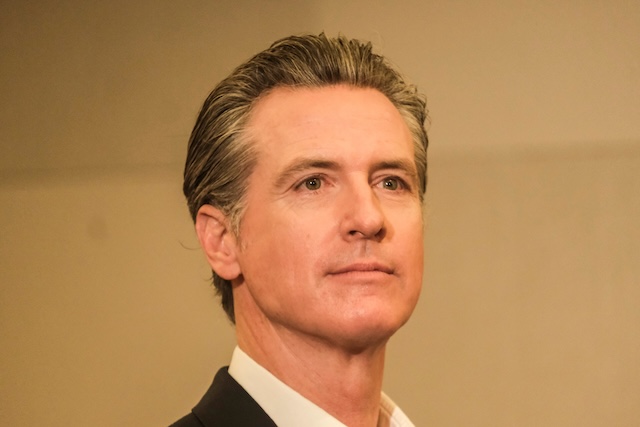Missing the Point – If not Joe Biden, who?
Like it or not, we are all out there somewhere on the great normal curve of existence, subject to disease and the wear and tear of life, to the left and right of the median.
According to the Centers for Disease Control and Prevention, people born in the United States can be expected to live for 76.4 years, women for 79.3 years, and men for 73.5 years. Some of us won’t make it that long. Others of us – depending upon all sorts of factors, including affordable access to quality health care – will do better than the average.
I have an aunt who, having never exercised a day in her life, died peacefully while taking a nap when she was 107. Her short-term memory had been problematic during her last few years but, otherwise, she lived a life without serious problems with her health. Good for her. I’d like to live that long like my Aunt Anna, but won’t be surprised if I don’t.
Joe Biden is 81 and will be 86 at the end of a second term if he’s re-elected. I hope he lives forever, but that’s not going to happen. As a rule, the older you get, the less sharp your brain and the more subject you are to strokes, heart failure and other bad stuff. So, lately, I’ve been asking myself, what happens if Joe Biden has a stroke or some other debilitating health issue prior to the Democratic National Convention which starts on August 19. Or maybe he’s just too low in the polls and likely to lose to Donald Trump or some other Republican his party nominates. Who would I want the Democrats to nominate?
“Aren’t there any circumstances under which you’d vote for a Republican?”
No.
“Not any Republican anywhere in the Party?”
No. I know this sounds harsh, but no way am I going to do anything to give additional authority to the Republican Party until the lingering stench of Donald Trump is long gone. Unfortunately, the only way I see that ever happening is by virtue of the birth of a new conservative movement, a major third party that leaves all the Trump officials in Congress and state government behind.
“Okay then, how about Vice President Kamala Harris?”
I have great respect for Vice President Harris. Unfortunately, however capable she may be as a potential President, she’s neither popular enough nor sufficiently skilled as a campaigner to assure a Democratic victory. My favorite option would be California Governor Gavin Newsom. No specific comment as to who his running mate might be.
Newsom is 56 years old. He was Mayor of San Francisco, then Lt. Governor of California before being elected to his first term as Governor in 2018, taking office in January of 2019. Before becoming Mayor of San Francisco, he was a successful businessman.
Presumably, Newsom would bring with him California’s 54 electoral votes which is the most of any state and, more importantly, 20% of the total 270 needed to win.
He’s young. His age won’t be an issue. Smart and thoughtful. Experienced. Very well-spoken. An excellent campaigner. Teamed with a strong female candidate who appeals to women around the country, a Newsom-headed ticket would be both good for America and damn near unbeatable by the lunatic Donald Trump or any alternative should Trump fail to receive the nomination of his party.
To date – and I don’t think this will change – Newsom has been a clear and outspoken advocate for President Biden. Honestly, Newsom would be a better choice for Vice President than Kamala Harris because voters would feel more comfortable were he (Newsom) to inherit the Presidency during a second Biden term. It’s an interesting, but unlikely option for the Democrats to consider. Governor Newsom is maxing out his two terms in office and, I believe, will run for President in 2028.
In general, there are two types of delegates to the national conventions where candidates for President are nominated… Delegates who are, by law, pledged to vote for the candidate during the first and, sometimes, subsequent rounds of voting. And unpledged or “superdelegates” who can vote for whomever they choose, whenever they want. Election laws related to convention delegate commitments vary from state to state.
What happens if a candidate – Joe Biden or Donald Trump, for example – is determined to be physically unable or declines to run for office, for whatever reasons, before the convention? Or after being nominated, but before election day? I’m not sure specifically how the process works, but the choice of an alternative nominee is up to the nominating party.
How likely is it that there will be a “brokered” Democratic or Republican convention? Very unlikely. Estimates are that the Democrats will have 4672 total delegates to their convention, of which 3,933 are pledged, 739 of which are superdelegates. One more than half of the pledged delegates, 1968 to be precise, are required to nominate a candidate on the first ballot. For Republicans, estimates are that there will be 2,429 total delegates, 2325 pledged, and 104 unpledged. Only 1,215 – over one-half of total delegates – are required to nominate their candidate.
To date, Joe Biden has won 2,584 convention delegates which is more than he needs to secure the nomination. Trump has won 1686 delegates, more than he needs. Unless something debilitating happens to one or both of these candidates before the conventions, Joe Biden and Donald Trump will be nominated by their respective parties. For either of them not to be nominated, either something health-related has to occur or their standing in polls needs to fall to the point of encouraging a voluntary resignation as nominee. We don’t wish people ill health and neither Biden nor Trump is likely to throw in the towel no matter what the prognosis, politically speaking.
Why is there never a good towel around when you need one?

Les Cohen is a long-term Marylander, having grown up in Annapolis. Professionally, he writes and edits materials for business and political clients from his base of operations in Columbia, Maryland. He has a Ph.D. in Urban and Regional Economics. Leave a comment or feel free to send him an email to [email protected].

